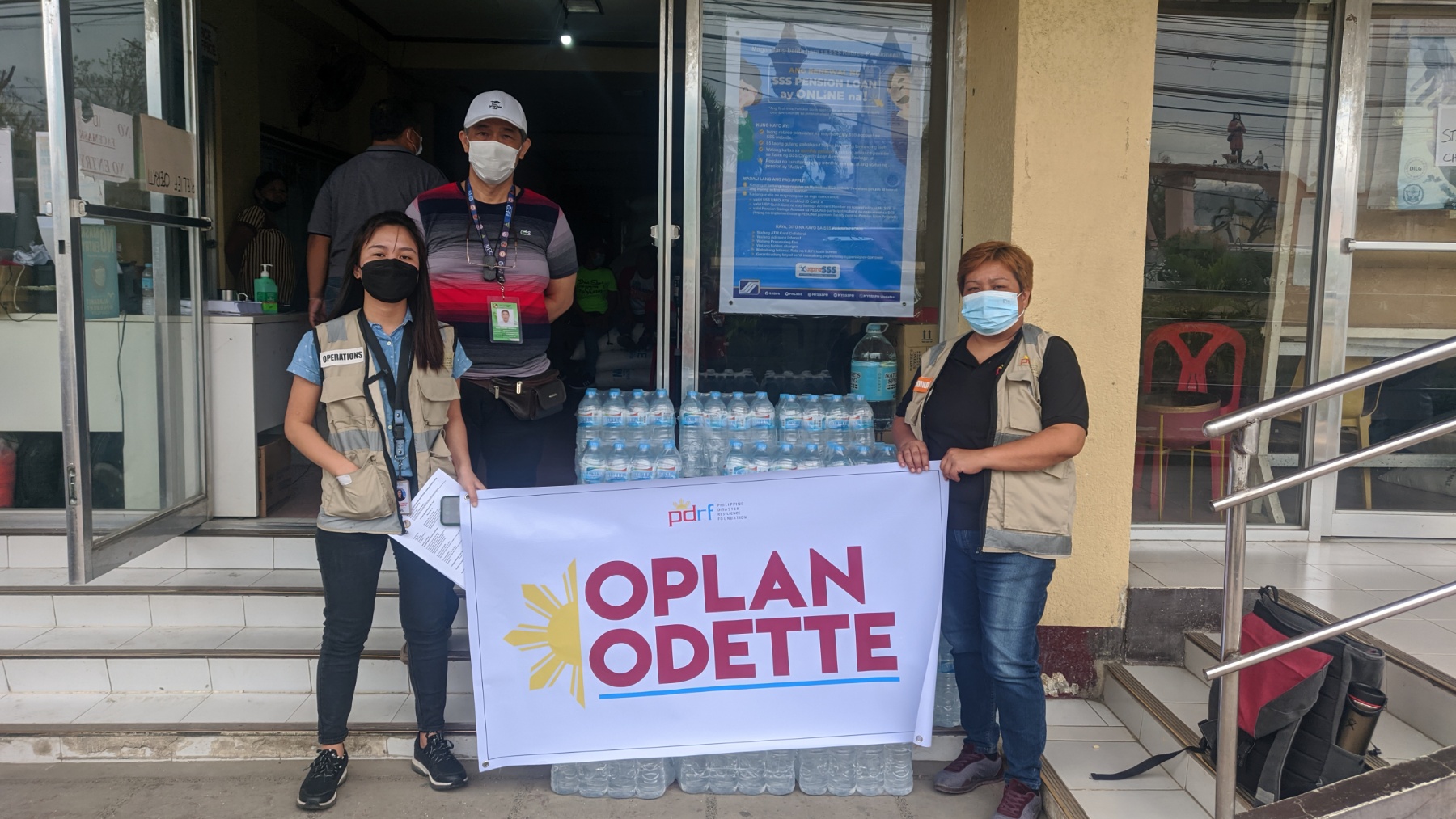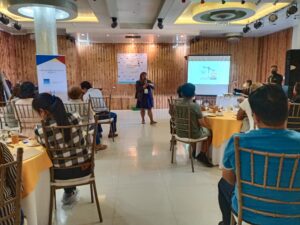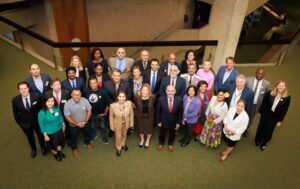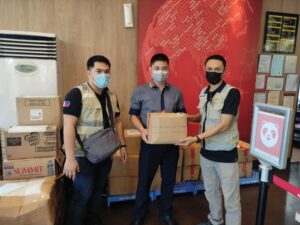The United Nations Office for the Coordination of Humanitarian Affairs (OCHA) organized a virtual briefing last February 2 to update Member States and partners on humanitarian needs in the Philippines following Super Typhoon Rai (local name Odette) where the Philippine Disaster Resilience Foundation (PDRF) represented the Philippine private sector for the very first time.
The briefing was chaired by Mr. Ramesh Rajasingham, the Assistant Secretary-General for Humanitarian Affairs and Deputy Emergency Relief Coordinator of OCHA. Other speakers included His Excellency Mr. Teodoro Locsin Jr., Secretary of Foreign Affairs, Ms. Sarah Charles, Assistant to the Administrator of USAID’s Bureau for Humanitarian Assistance, Mr. Gustavo González, UN Resident Coordinator and Humanitarian Coordinator in the Philippines, and Ms. Regina “Nanette” S. Antequisa, Executive Director of ECOWEB.
PDRF Executive Director Veronica Gabaldon highlighted the PH private sector’s contributions to disaster response for Typhoon Rai including the restoration of critical lifelines such as electricity, water, and telecommunications. She also bolstered the role of private companies in augmenting government resources and coordinating with both national and international humanitarian actors.
“Despite being among the adversely affected, the private sector continued to do its share in responding to the pandemic and severe weather disturbances but there is still so much work to be done,” said Gabaldon. “We may have begun the process, but rebuilding is long and arduous, requiring more and more resources before healing can truly take place.”
“We commend each of our partners in disaster preparedness as they immediately rose to action in support of the government efforts to reach those hit hardest by the typhoon,” said Sarah Charles, Assistant to the Administrator of USAID’s Bureau for Humanitarian Assistance.
Typhoon Odette entered the Philippine Area of Responsibility last December 14 and made nine landfalls in Surigao del Norte, Dinagat Islands, Southern Leyte, Bohol, Cebu, Negro Oriental, and Palawan before exiting in the West Philippines Sea.
According to OCHA’s Revised Humanitarian Needs and Priorities (HNP) (which was launched on the same day as the briefing), 16 million people were severely affected with 2.4 million still in need of assistance. A total of 1.7 million houses have been damaged or destroyed, and damages and losses to the agricultural sector are valued at over US$330 million.
More than a month after the storm, 144,000 people remain displaced, nearly half of them in Evacuation Centers. And while power has been restored in some areas, 80 municipalities continue to experience power outages or disruptions.
“A crisis within a crisis, Typhoon Rai hit just as the Philippines was experiencing a surge in COVID-19 cases, slowing the response and burdening the already disrupted medical system,” said UN Resident Coordinator Gustavo Gonzalez in his statement. “This follows two years of a pandemic that has heightened vulnerability and now threatens to erode many hard-won development gains across the country. Swift and generous support from donors is vital to protect this important development progress from backsliding.”
The HNP recommends that critical emergency response should prioritize shelter; food security and agriculture; and water sanitation and hygiene (WASH).
The recording of the OCHA briefing can be viewed here: https://media.un.org/en/asset/k1w/k1w27801i7
For more information on how to support communities affected by Typhoon Odette, visit: www.pdrf.org/how-you-can-help/



